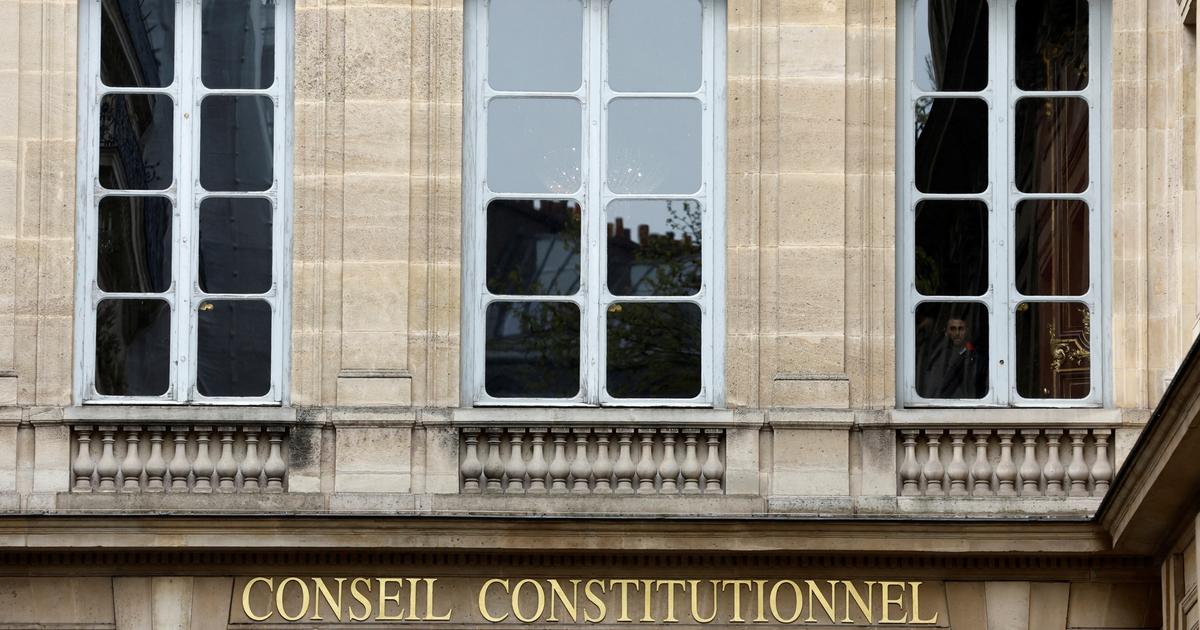Christophe Boutin is a professor of public law in Caen.
The figure of the watered sprinkler remains one of the great springs of comedy, and certain reactions of jurists to the recent decision of the Constitutional Council on the "pensions" law allows us to taste this rare pleasure.
In fact, we find among the most severe critics of this decision some of the most eminent supporters of the constitutional judge, those who for decades have never ceased to boast to us of this loaded democratic avant-garde, despite a power retrograde, and in the name of a people sometimes not very capable of perceiving by itself the direction of the tomorrows that sing, to make our society evolve.
Their main criticism here concerns the self-limitation that the constitutional judge would have operated in his analysis of the procedure followed by the government.
That the latter was able to use all the weapons at his disposal to have his reform adopted – the support of art.
47-1 of the Social Security financing laws, the blocked vote of art.
44, the articles of the rules of the Senate making it possible to set aside amendments or to shorten the debates, without forgetting of course the engagement of responsibility of art.
49 al.3 - this should have led, according to them, to a declaration of unconstitutionality.
By refusing to do so with a reading that was far too formalistic, the Council would ultimately have remained the
"watchdog of the executive"
,
.
It remains that respecting the spirit of the institutions by sticking to the letter of the constitutional text is not necessarily shocking, and that it is no doubt more up to the sovereign people to modify its fundamental law than to the judge to lay down by his case law the conditions for a new balance of powers.
Read also Pensions: why the Constitutional Council rejected the first RIP and could do the same with the second
But we better understand this need to rebalance powers by following their analysis of the different phases of the vote on this law.
For them, the government, by thus using all its powers, would have provoked the legitimate revolt of one part of the parliamentary oppositions, pushing the latter to behave in ways that some of our analysts - but not all - are willing to admit that they do not brought nothing to the quality or serenity of the debates.
However, the assessment of the Constitutional Council is strictly the opposite:
“the combined use of the procedures implemented took on an unusual character – indeed writes the latter –, in response to the conditions of the debates”
, and it would therefore be because of the latter - meaning by that mainly the parliamentary obstruction carried out by the Nupes in the National Assembly - that the government would have been forced to use all the weapons offered to it by the Constitution.
Two political readings therefore of the succession of the different episodes of the adoption of the text, on which depends a legal interpretation.
One has a little the impression that as long as the jurisprudence of the Constitutional Council goes in the direction of their political choices, these eminent commentators of "doctrine" gladly go into raptures in front of such creative freedom
Christophe Boutin
Such a reading of the letter of the constitutional text would in any case be very meanly legal for those who, like Dominique Rousseau, compare this decision of April 14, 2023 to the “major decisions” of the constitutional judge – citing for example those of 1971 on the freedom of association, or of 2013 on marriage between persons of the same sex, two decisions in which, no one will say the contrary, the Council showed itself to be very far from this strict interpretation for which it is criticized here.
In fact, in 1971, the use of the Preamble to the Constitution as a standard of reference, contrary to the commitments made during the drafting of the latter, operated what can only be called a "coup d'Etat de droit ".
In 2013 then, the judge of rue Montpensier, then chaired by Jean-Louis Debré, was forced,
"fundamental principles recognized by the laws of the Republic"
by adding a restrictive condition.
Looking closely, one gets the impression that as long as the case law of the Constitutional Council goes in the direction of their political choices, these eminent commentators on "the doctrine" are happy to go into ecstasies in front of such creative freedom - and the we will undoubtedly have much less criticism of the same if the constitutional judge validates the second proposal for a referendum of shared initiative.
But if this enlightened avant-garde of the “Nine Sages” dares to stick to a “legal” reading and thus abstains from agreeing with them politically and they are very close to being indignant against this “government of judges
”
. .. which they helped legitimize.
Like what this "government" is perhaps never that of judges who take decisions that displease us!




/cloudfront-eu-central-1.images.arcpublishing.com/prisa/OTWB63YVDRNKAQLEH7S4FTFBNI.jpg)




